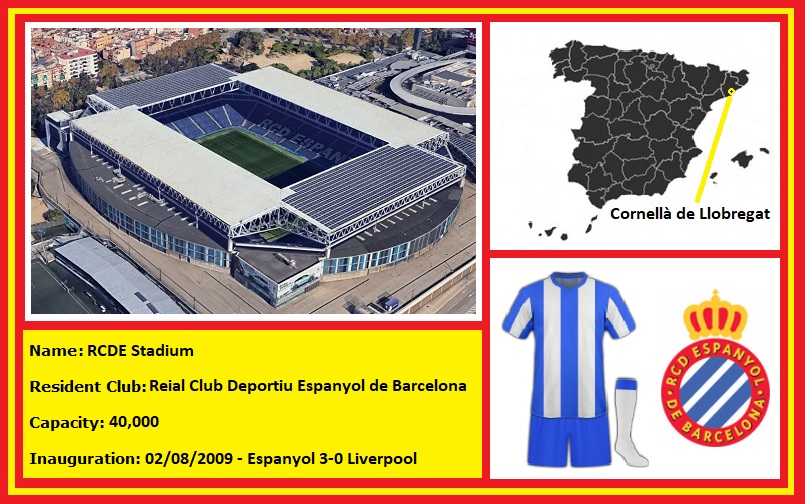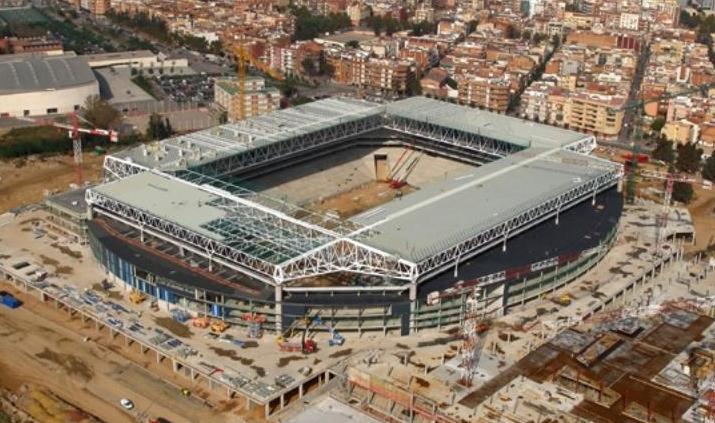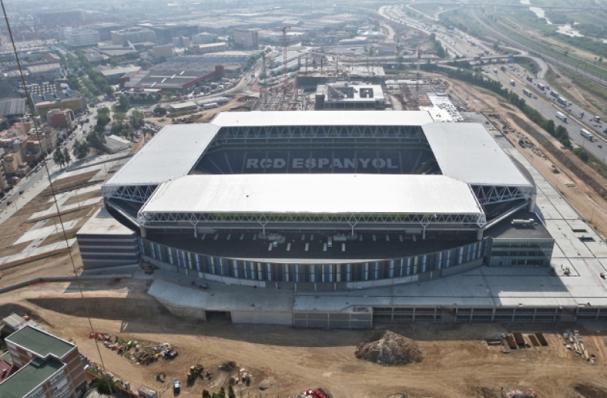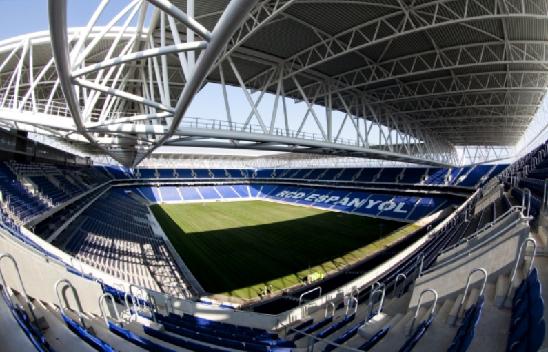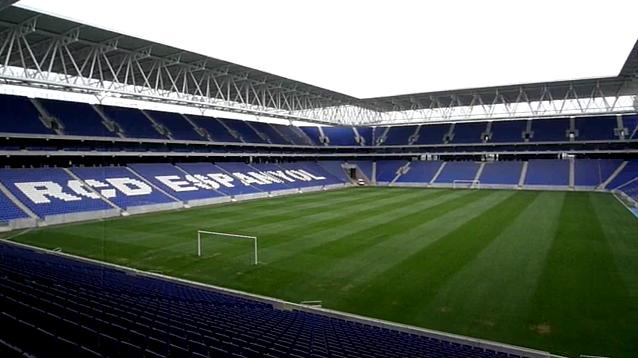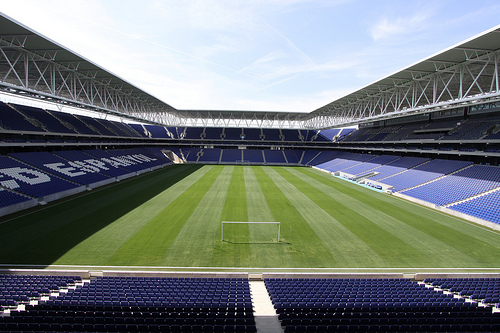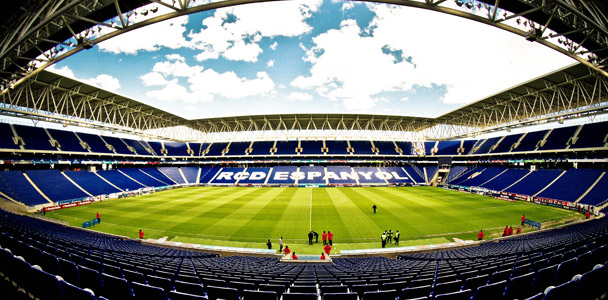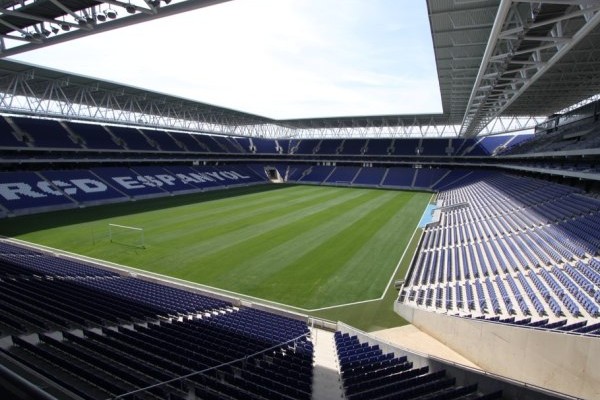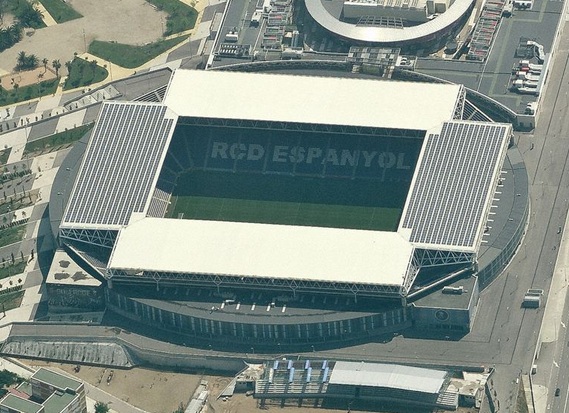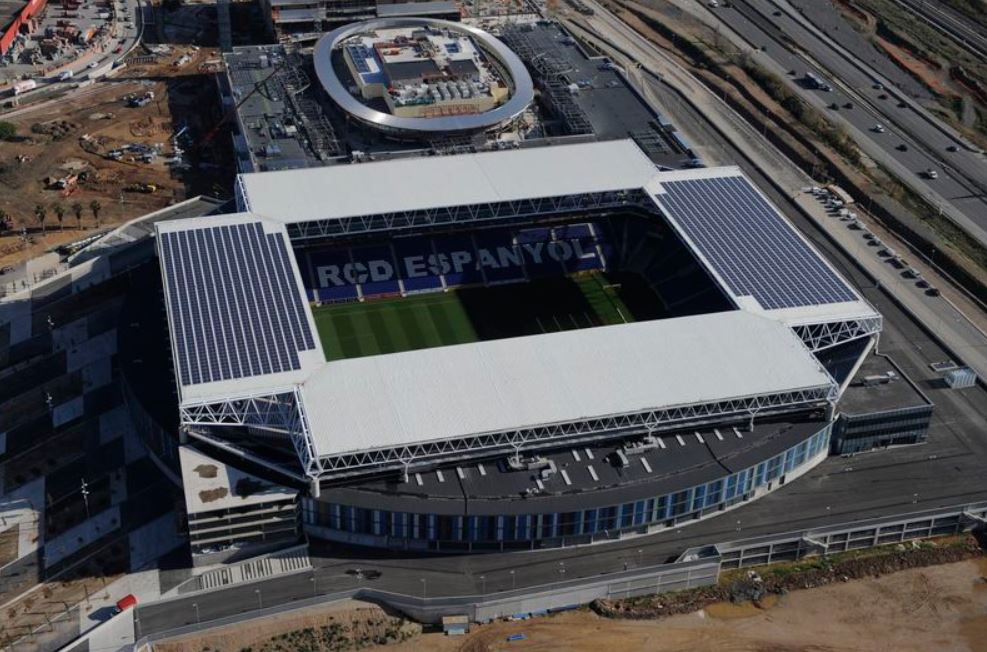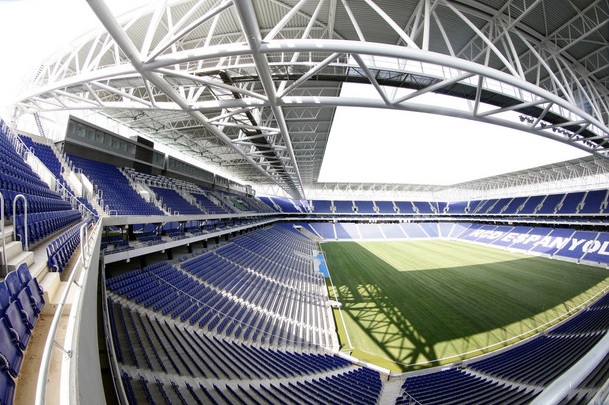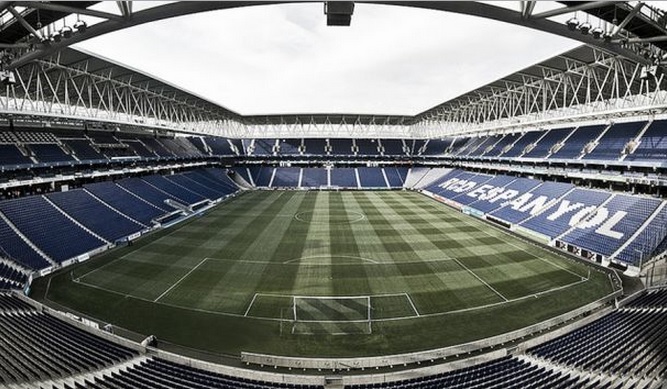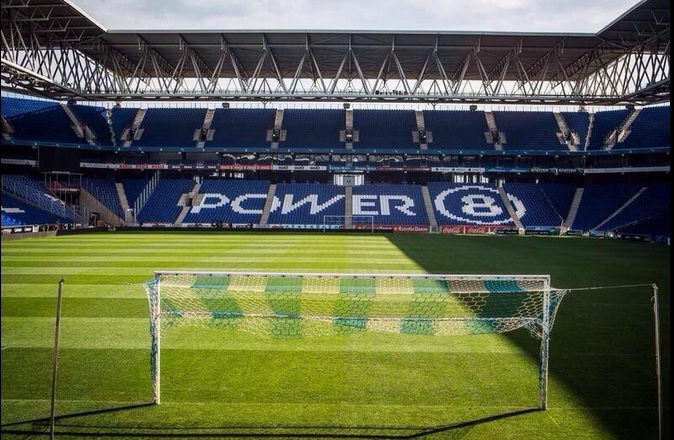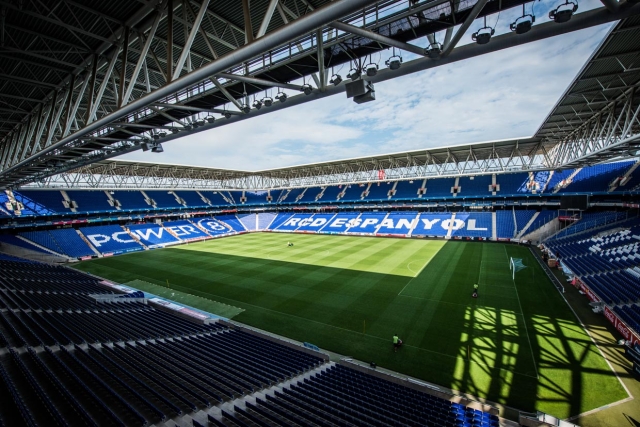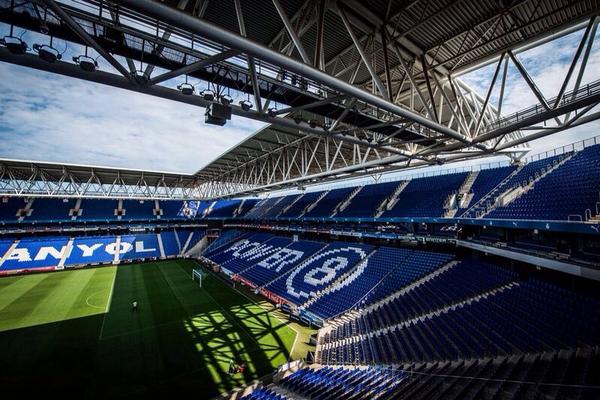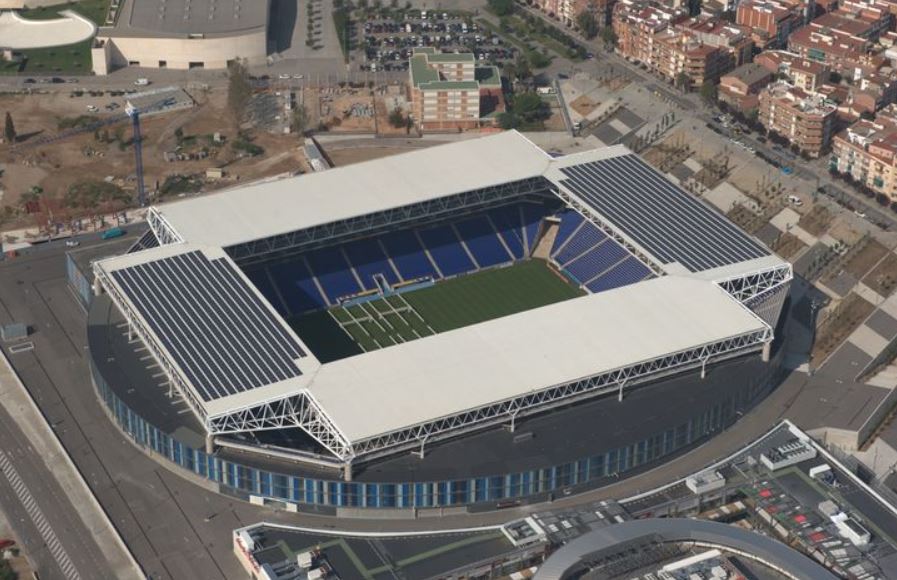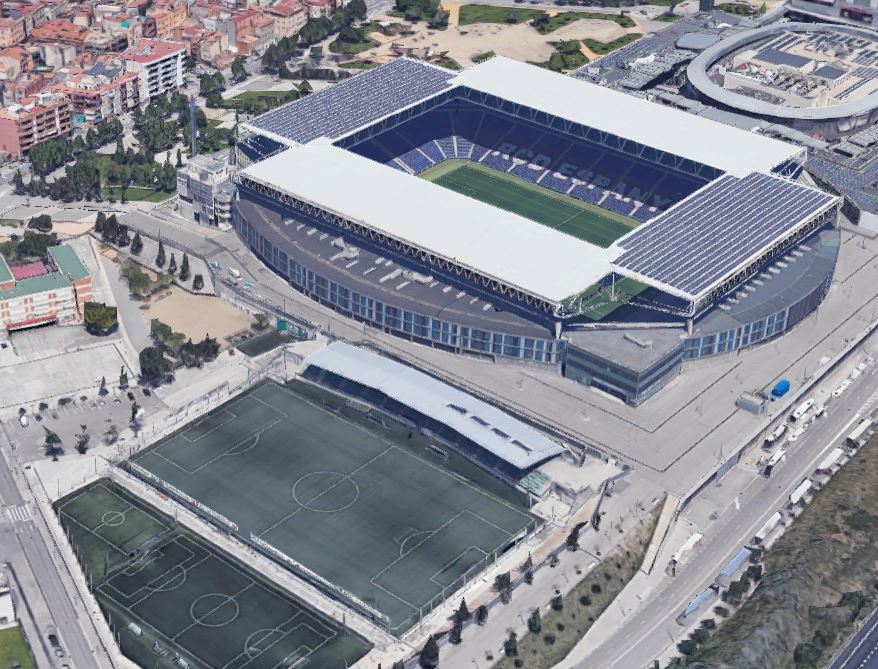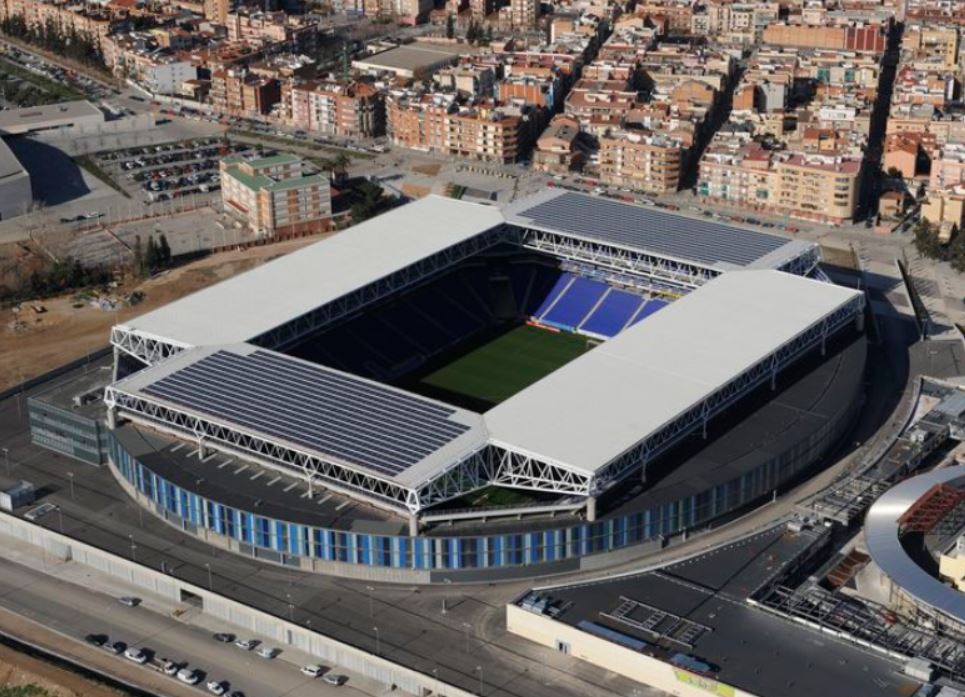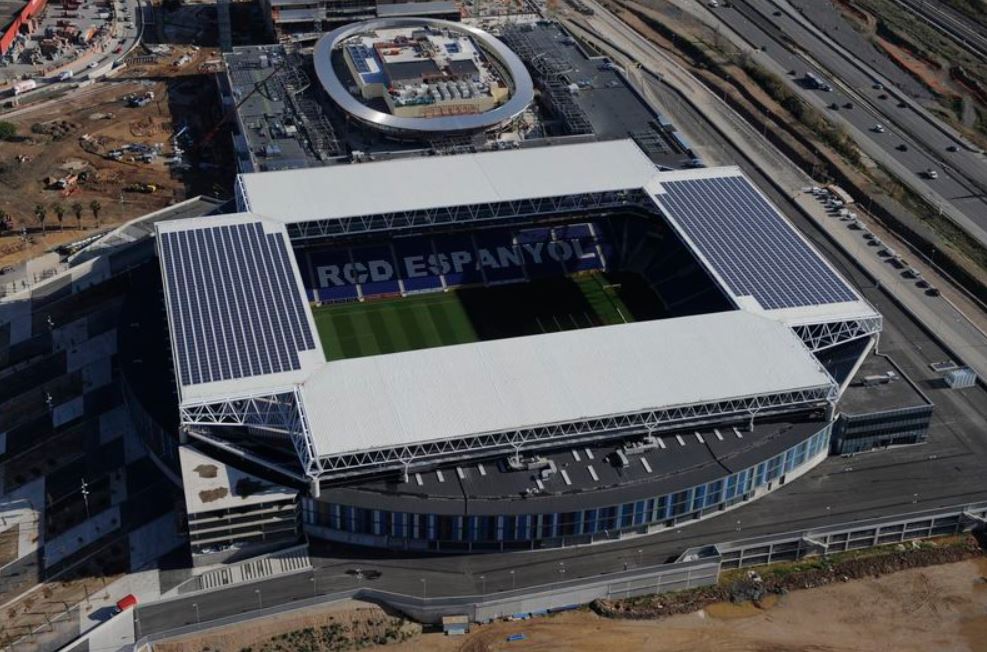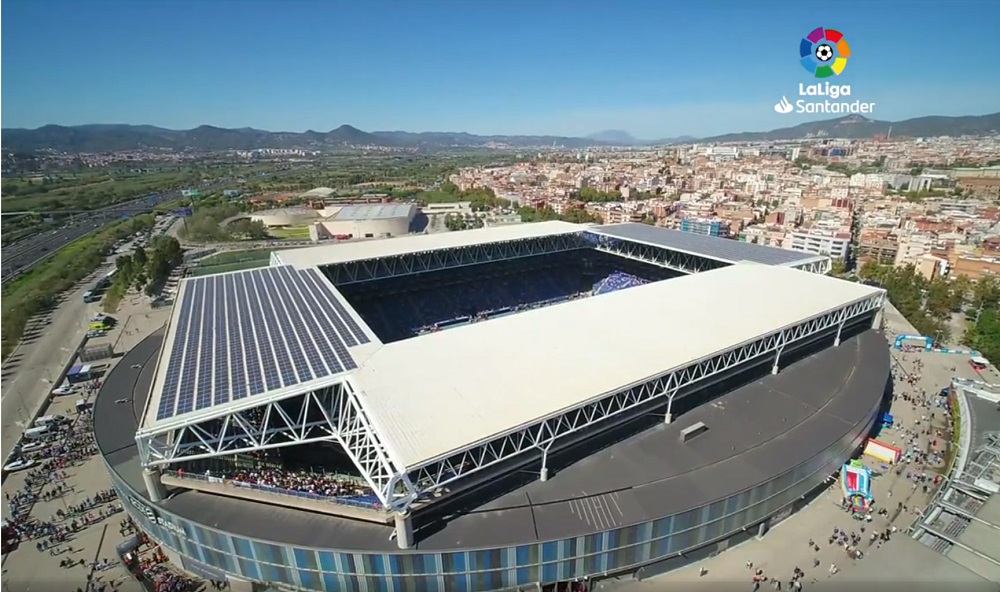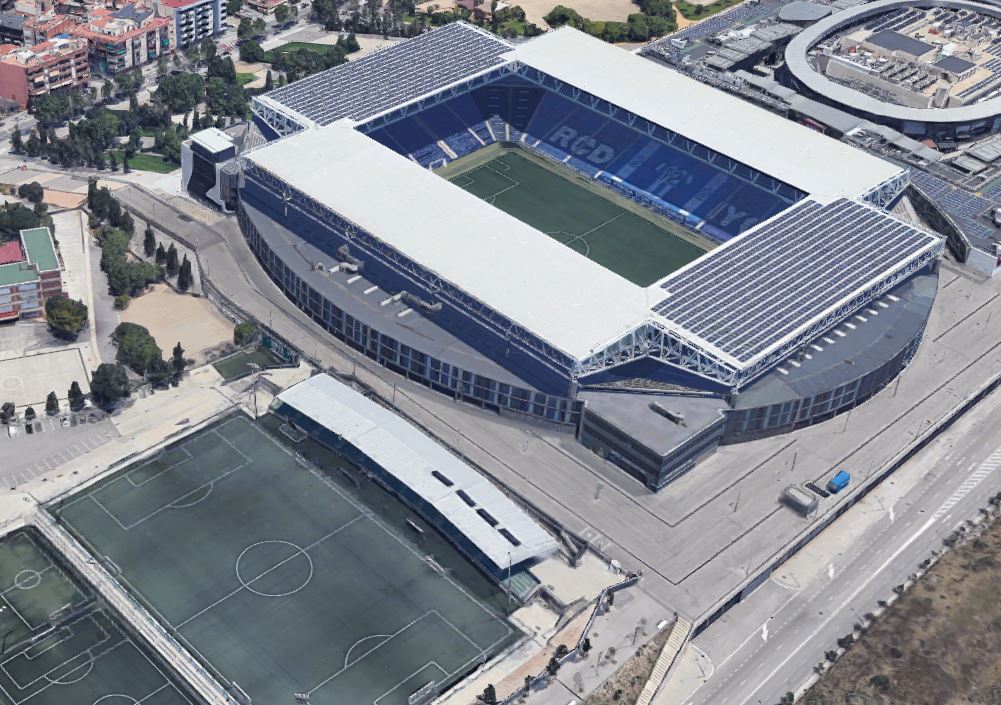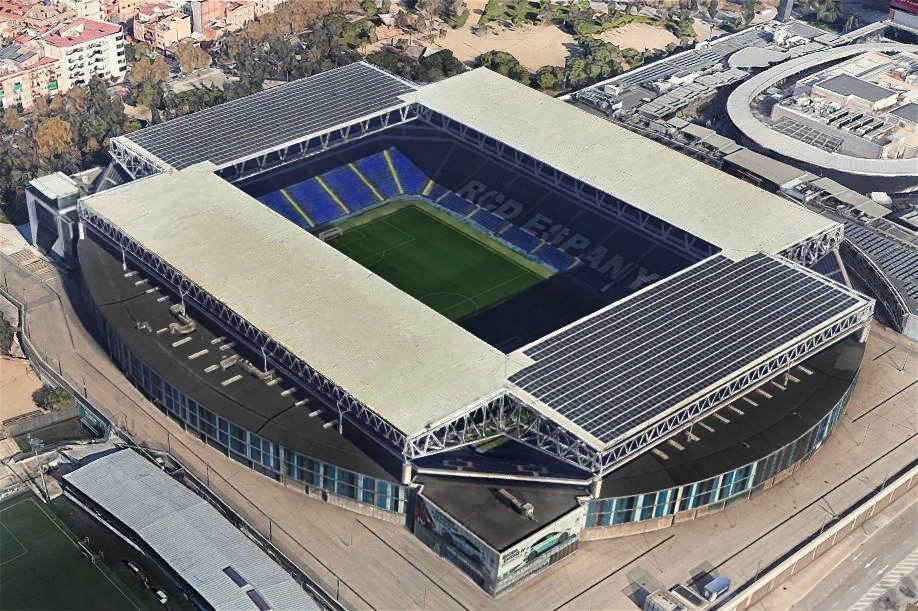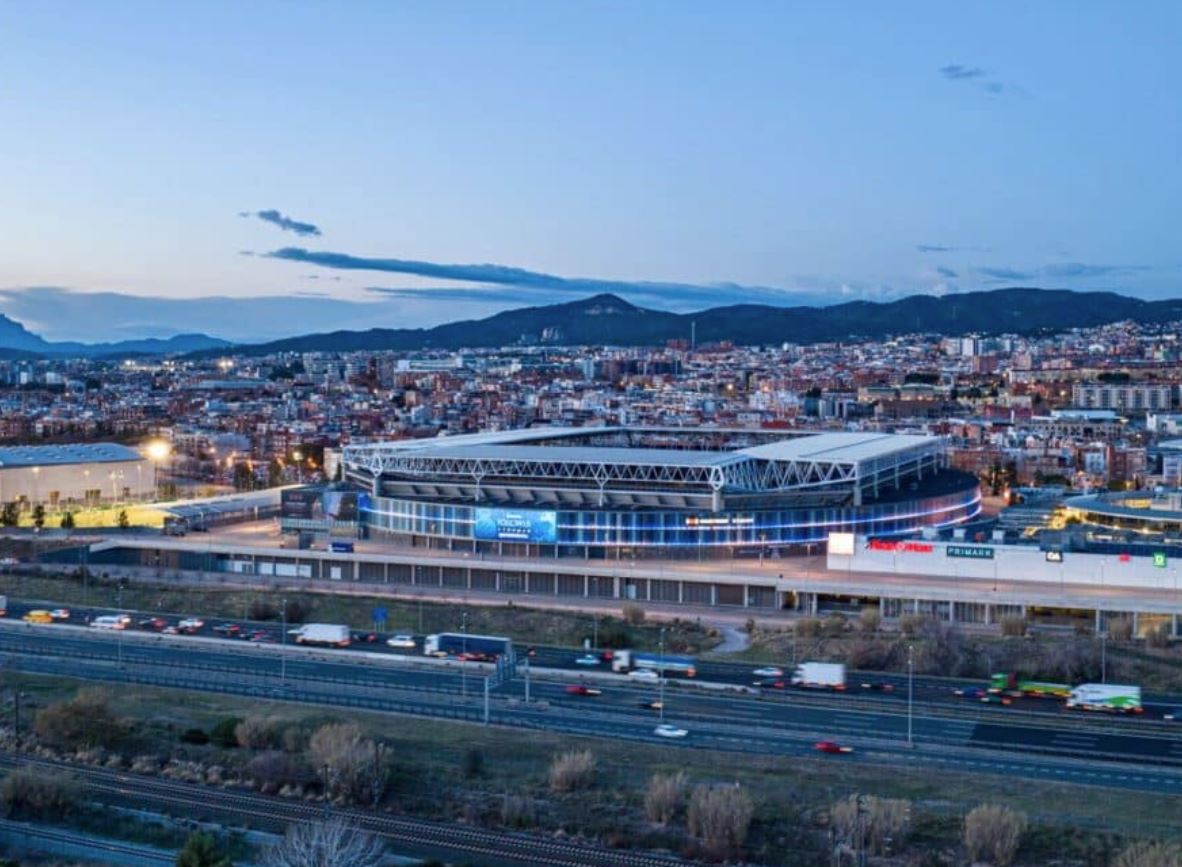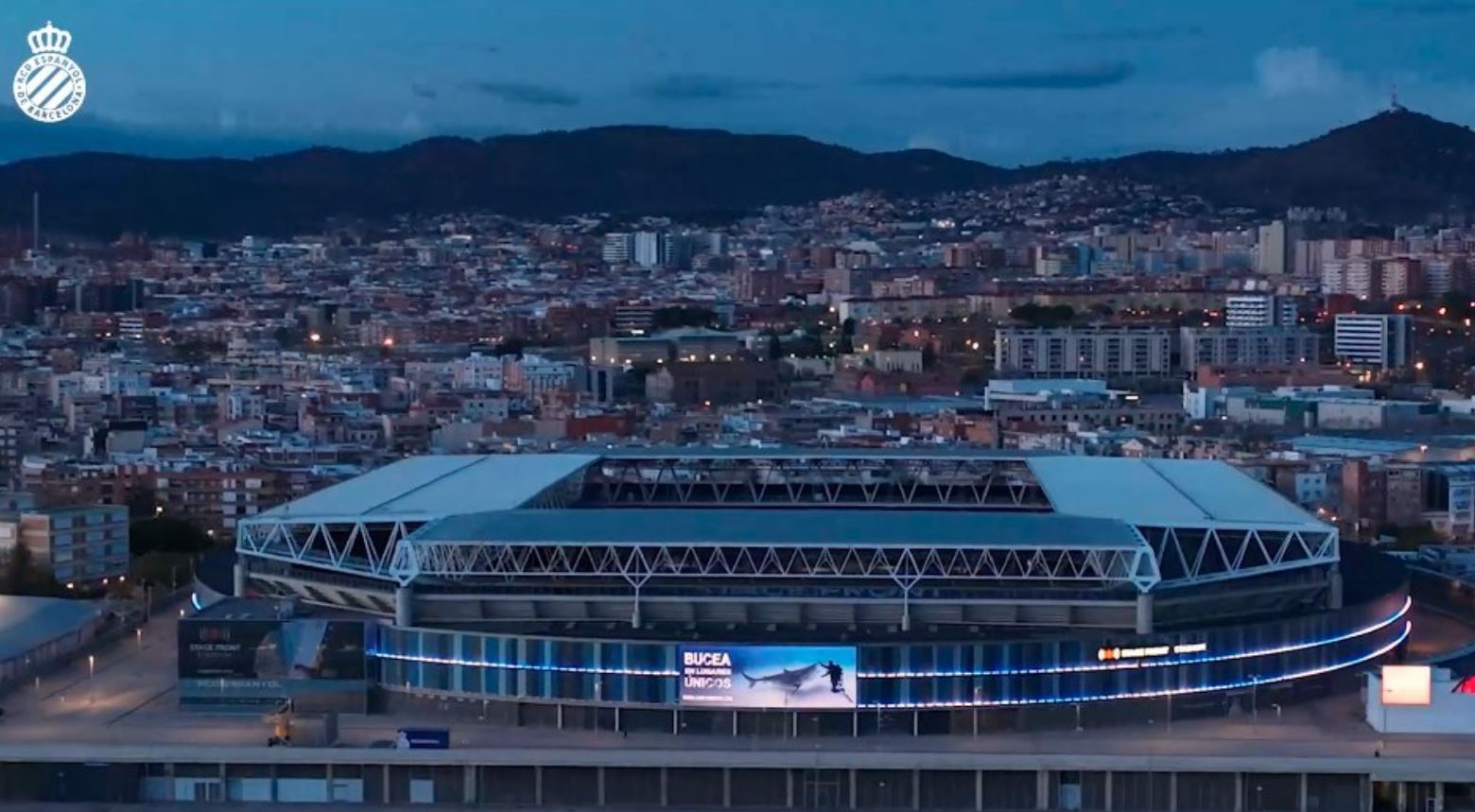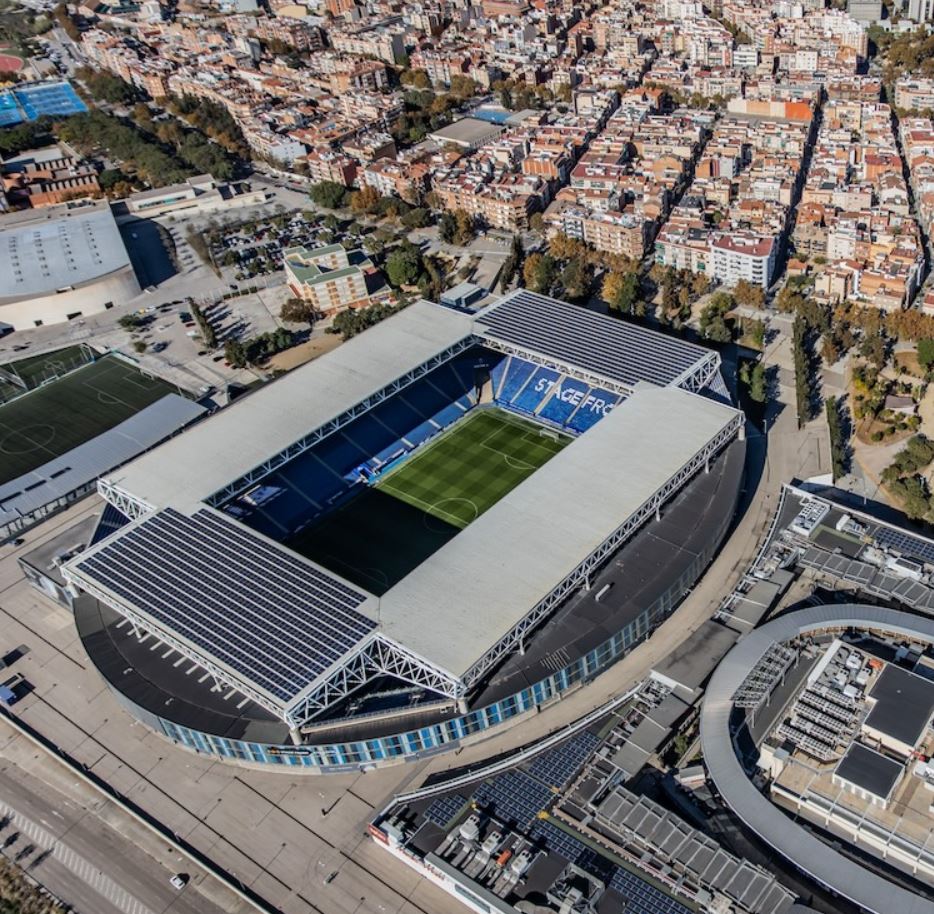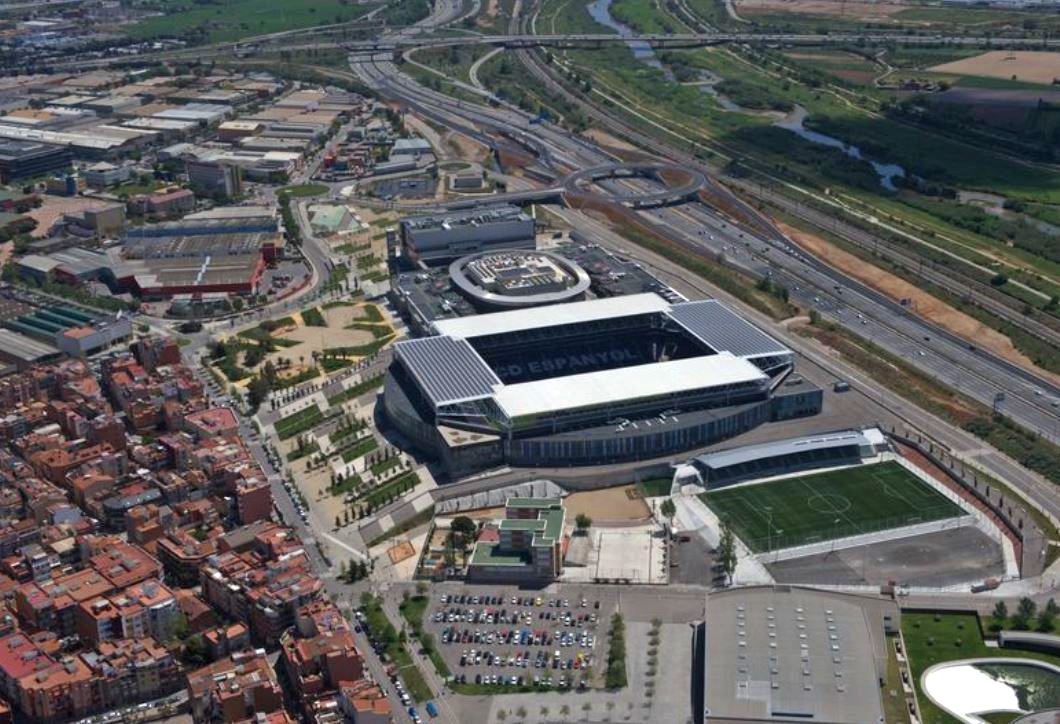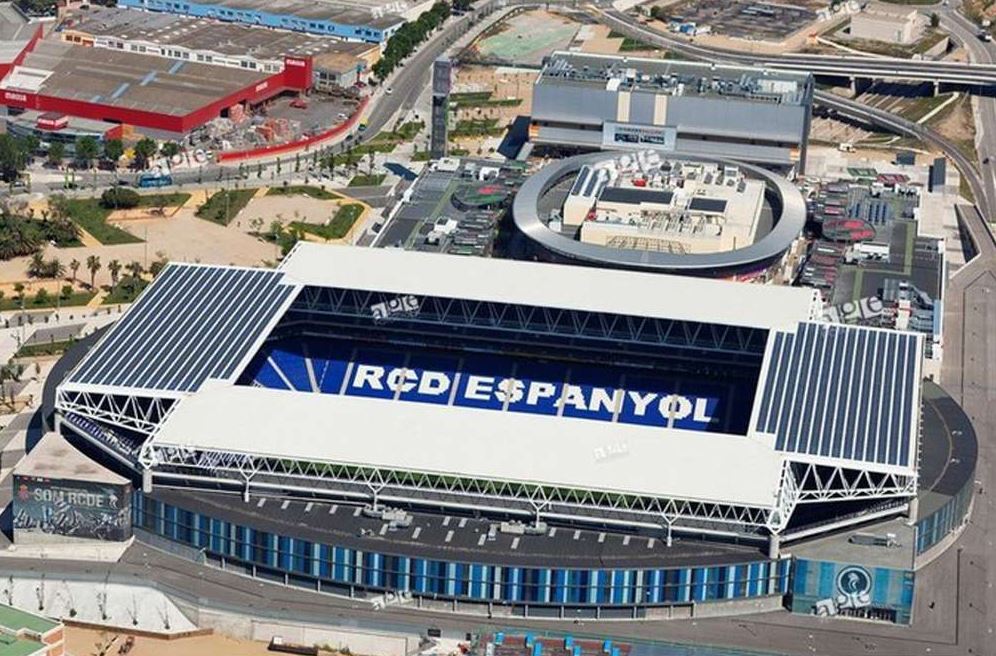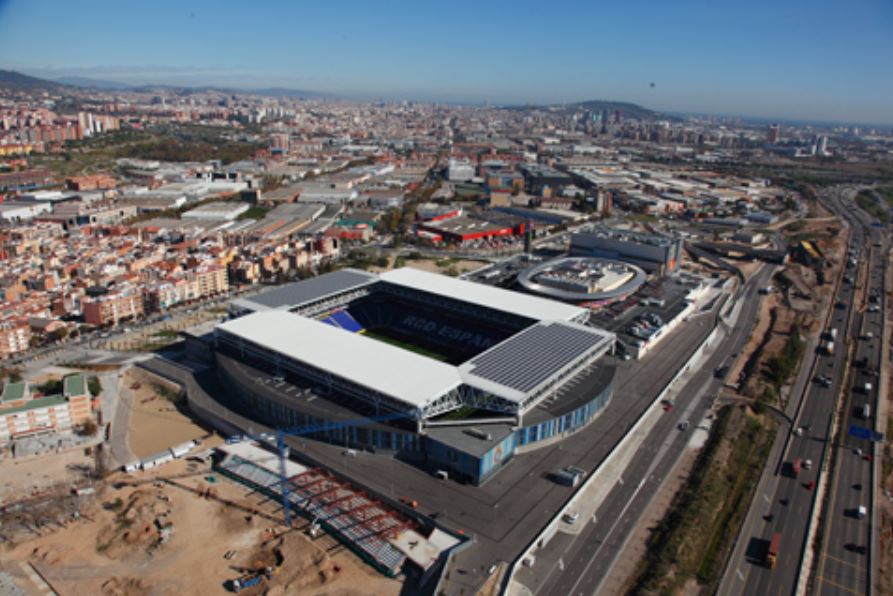Many people questioned the wisdom of RCD Espanyol when they revealed that their new stadium would be built on a strip of industrial wasteland by the banks of the Rio Llobregat in the satellite town of Cornellà-El Prat. It was off the beaten track and well away from their traditional heartland. Well, talk about turning a sow’s ear into a silk purse, as Espanyol’s home is one of the best stadiums built in Spain since the late 1950s.
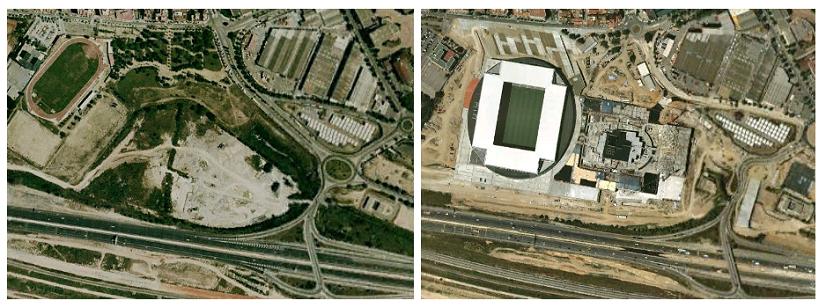
In 2002, the club purchased the land for €360,000 and set about the torturous process of building a football stadium. Four years of relocation, redevelopment and negotiations between the club, municipality and Catalan Government took place before the first foundations were laid in November 2006. Reid Fenwick & Gasulla Arquitectura won the international competition to design the stadium and over the next two and a half years, the fans waited patiently as the stadium started to take shape. The waiting was helped by Espanyol’s excellent form on the pitch, particularly in Europe, where they reached the final of the Uefa Cup, only to lose on penalties to Sevilla.
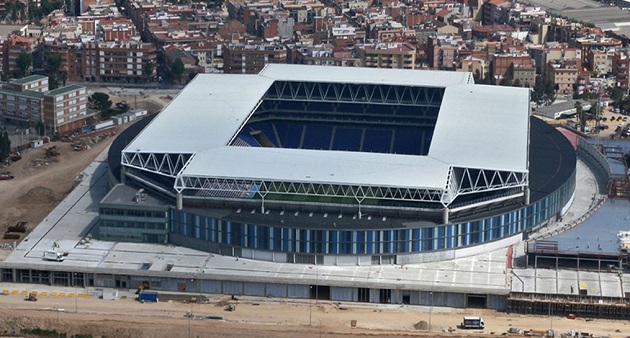
On 13 July 2009. the club took the “keys” to their new stadium and set about moving in. Six days later, a load test was conducted when a team of Espanyol veterans played the local club side and soon-to-be neighbours, UE Cornellá in the stadium’s first unofficial match. UE Cornella would open their new stadium to the rear of the main Tribuna in August 2012. The first official match was held on 2 August 2009, when Liverpool was beaten 3-0 with Luis Garcia having the honour of scoring the first goal.
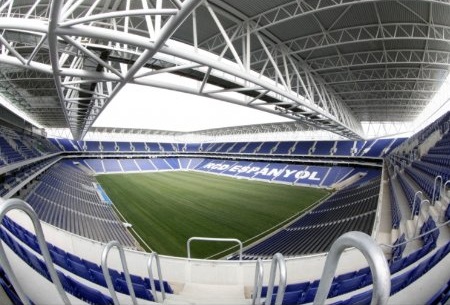
The interior consists of two tiers holding a total of 40,000 blue and white seats, but as with Arsenal’s Emirates Stadium, it is the detail and finishing touches that make the difference. Sandwiched between the tiers is the corporate area, consisting of 36 executive boxes and a 270-seat President’s Club. The Hoi Polloi are also well catered for, with concourse areas that include 27 bars, a club museum and shopping outlets. The building also houses office rental space and has a 540-square-metre warehouse under the pitch. The principal stakeholder in the stadium was the LAR Company, which funded €40m of the total €60m cost, as well as operating the mall opposite the stadium.
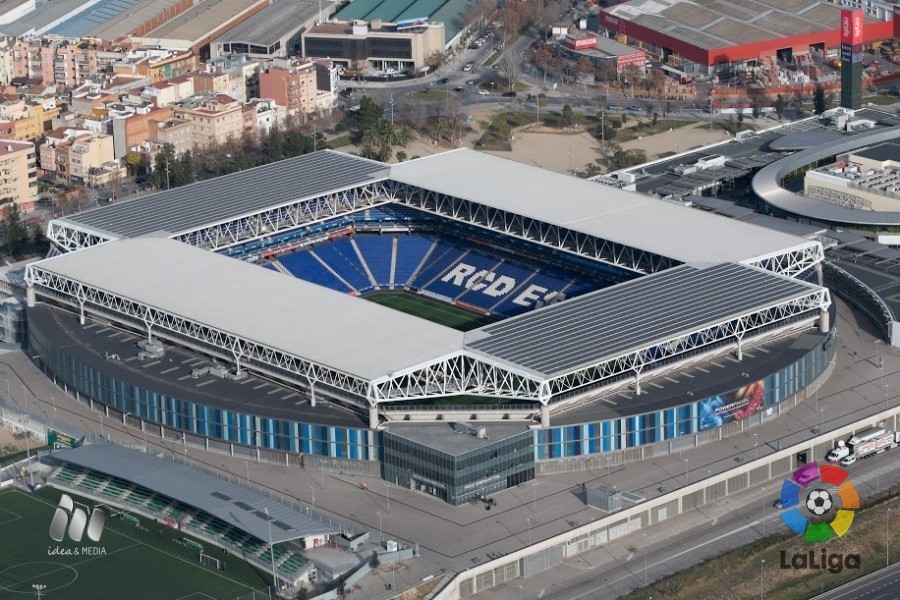
The roof seems to float over the four sides of the ground but curiously does not cover the corners of the upper tier. It also includes solar panels that provide electricity and hot water to the arena, with any surplus being redirected to the local grid, raising an estimated 600,000 euros per annum. Around the stadium is a circular perimeter wall, inset with perspex panels that light up in the club colours on match days. As you walk around the stadium’s perimeter, you come to Gate 21, which is dedicated to former club captain Dani Jarque. He played in that inaugural match against Liverpool, but a few days later, at a training camp in Italy, he collapsed and died. Eleven months after his death, childhood friend and Barca midfielder Andrés Iniesta dedicated his World Cup-winning goal to Jarque. On the eve of the Barcelona Derby in December 2010, Iniesta presented the famous t-shirt that he revealed when scoring, to the club to include in a mural that honours the memory of Jarque.
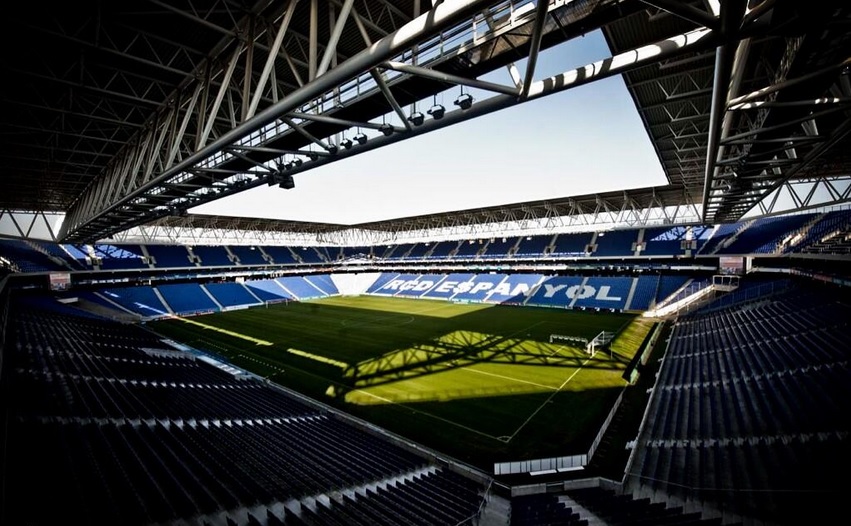
The stadium won the prestigious 2010 Business Award Stadium of the Year, beating off challenges from the Dallas Cowboys Stadium and Dublin’s Aviva Stadium. However, It has not all been sunshine and light. There has been none of the “new stadium bounce” witnessed at the likes of Real Sociedad & Athletic Club. Espanyol’s form at their new home has been mediocre at best, with the club enduring season-long stays in La Segunda in 2020-21 and 23-24. Attendances have also been disappointing, with Espanyol averaging fewer than 20,000 in the past few seasons. Many names for the new stadium were banded-about such as the Estadi Cornellà-El Prat, Estadi RCD Espanyol or Nou Sarrià. The club side-stepped naming the stadium after Jarque despite calls from socios, continuing to explore naming rights, before finally settling on a 7-year deal with Power8, a gaming technology firm, in June 2014. The choice was not exactly catchy and was poorly received by the fans. So much so, Espanyol ditched the deal in January 2016 and settled on the title of RCDE Stadium.
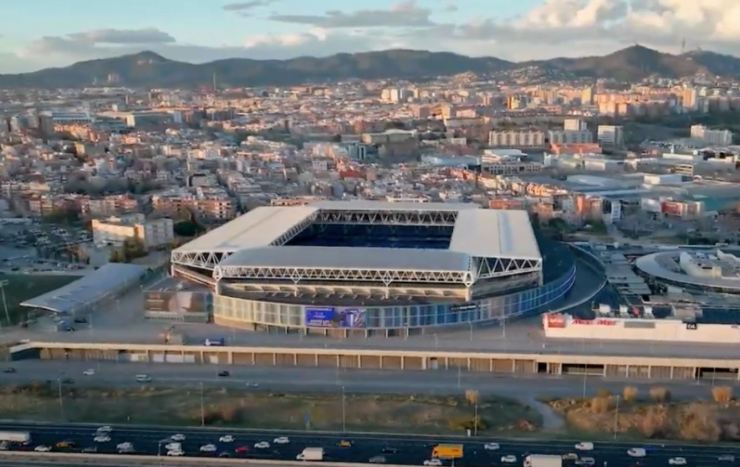
Whatever Espanyol call home over the next few years, it will revert back to the RCDE Stadium when it hosts matches during Spain’s joint hosting of the 2030 FIFA World Cup. Then the world can see that this is a magnificent stadium. A fact that not even the most hardened fan of FC Barcelona, their closest and oldest rivals, would deny.

